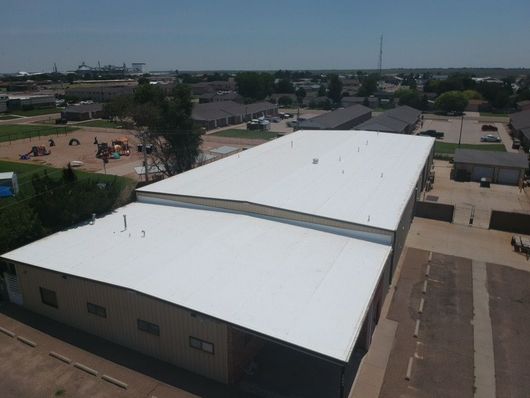When it comes to your business property, the roof is one of the most important aspects to consider. Not only does it protect your building from the elements, but a strong, durable roof can save you significant repair costs and even improve energy efficiency. In this guide, we’ll explore the best materials for commercial roofing and why investing in quality roofing is essential for long-term success.
How to Identify Your Commercial Roofing Needs
Commercial roofs face different challenges compared to residential roofs. Factors like climate, building structure, and the nature of your business operations all influence what type of roofing system is ideal. Whether you're managing a warehouse, an office building, or a retail store, understanding your specific needs will ensure that you choose the right roofing solution.
The Best Materials for Commercial Roofs
There are a few top roofing materials commonly used for commercial properties. Each comes with its unique advantages, depending on your needs and budget.
1. Metal Roofing
Metal roofs are a top choice for commercial buildings due to their durability and energy efficiency. Steel and aluminum are the most common materials used, offering resistance to harsh weather conditions and excellent leak prevention. The reflective nature of metal roofs helps keep buildings cooler, lowering energy bills.
Second Choice: Flat Roofs
Many commercial properties use flat roofs due to their cost-efficiency and easy installation. Flat roofs are especially well-suited for modern buildings, with materials like TPO, EPDM, and PVC offering excellent waterproofing and insulation. Regular maintenance and good drainage practices help extend their lifespan.
Shingle Roofs for Commercial Properties
Shingle roofing is not as common for large commercial buildings, but it can be a good choice for smaller properties or those that need a traditional look. Asphalt shingles are affordable and come in various colors and styles, though they don't offer the same longevity as metal or flat roofs.
Roof Installation Process and Maintenance Tips
Once you've selected the right material for your commercial roof, the next step is installation. Hiring an experienced, licensed roofing contractor ensures the job is done correctly. Proper installation is crucial for preventing leaks and maximizing the lifespan of your roof.
Regular maintenance is also essential. Inspections should be done at least twice a year, especially after harsh weather events. Look for signs of damage, such as missing shingles, cracks, or pooling water. Cleaning gutters and removing debris can also prevent long-term damage and extend the life of your commercial roof.

Why Investing in Quality Roofing Protects Your Business
Your roof is a long-term investment. A quality roofing system provides protection against leaks, which could cause expensive damage to your building and inventory. It also enhances energy efficiency, making your property more environmentally friendly and reducing operating costs. Ultimately, a well-maintained roof can improve your building's value and ensure that you’re not facing costly repairs down the road.
Conclusion: Choosing the Right Commercial Roofer
Choosing the right roofing contractor is just as important as selecting the best materials. Look for a licensed, experienced roofer who understands commercial properties and can help you select the best solution based on your business needs. A great contractor will also guide you through the installation and maintenance process to keep your roof in top shape for years to come.
Looking to replace your commercial roof? Contact us for a free consultation, and we’ll help you choose the perfect roofing solution for your needs!
#CommercialRoofing #RoofingMaterials #BusinessProtection #MetalRoofing #FlatRoofing #RoofInstallation #EnergyEfficiency #RoofMaintenance